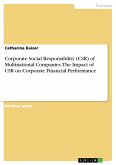Master's Thesis from the year 2014 in the subject Engineering - Industrial Engineering and Management, grade: 1.0, Technical University of Berlin, language: English, abstract: This thesis develops a six-step success factor model for IT-startups. It is based on an empirical analysis (Grounded Theory Method) of North American Startups. Further it provides an investment-decision model used by Venture Capitalists and Business Angels while deciding which Startup to fund.Every day an increasing number of business ventures (startups) are founded all over the world, especially in North America. Particularly the number of internet-based startups (e-business startups) with the endless possibilities of the online world is increasing continuously. However, most of these startups fail, while only a minority is able to survive and actually be successful. The research objective of this thesis is to identify and understand the factors that make an e-business startup successful. As a result, a six-step success factor model was generated that consists of the following six categories: preparation, entrepreneur/team, product/idea, financing, targeting and execution as well as one additional category, the external factors. Each of the categories consists of several specific success factors, such as team structure, network or scalability. Furthermore, the venture financing as an integral part of the six-step model was analyzed in detail and the decision-making criteria of venture capitalists were identified. The three decision-making categories for venture capitalists are the team, the product as well as the market along with the strategy. Each of these categories consists both, knock-out criteria (must-requirements, such as problem-solving product) and more detailed criteria (such as team experience or exit-strategy). Given that non-quantifiable factors can also contribute significantly to the success of a business, it is important to consider factors such as the challenges,success paths, behaviors as well as decisions of the founders and entrepreneurs of e-business startups. Furthermore, expert-opinions such as those of investors with substantial experience in that field can contribute significantly to assessing the success of an e-business, and are thus important to take into account. Hence, 20 interviews with successful entrepreneurs/CEOs and (co-)founders as well as highly experienced investors/venture capitalists were conducted to gain valuable insights. The research method used is the Grounded Theory Method, which is one of most valid methods to generate new theories in such under-researched fields based on qualitative interviews.








